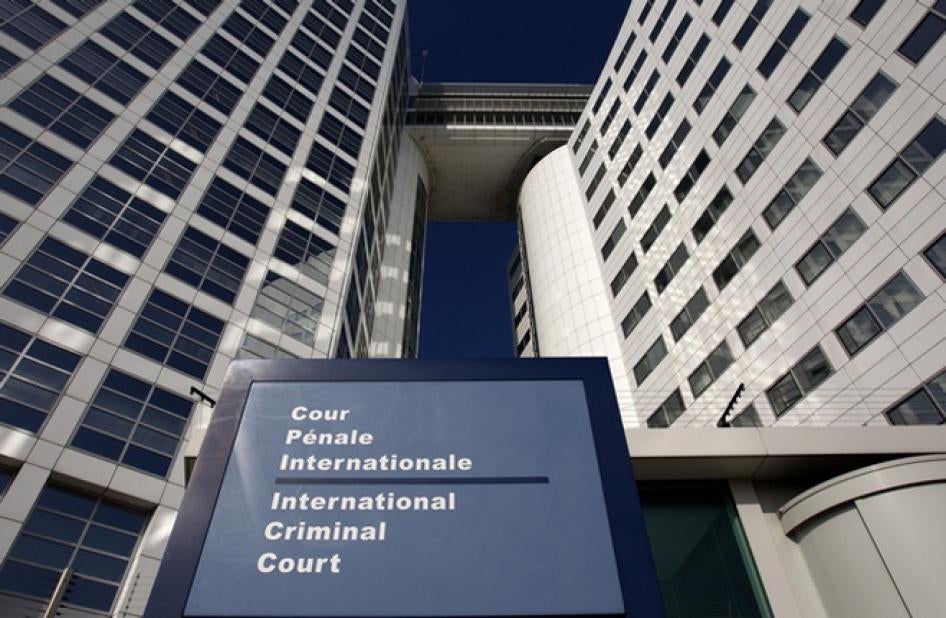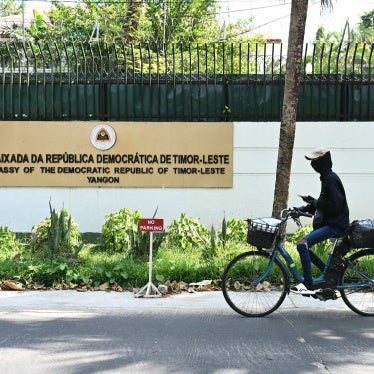Elizabeth Evenson, Senior Counsel, International Justice Program
November 19, 2015
Mr. President, Your Excellencies,
Thank you for the opportunity to address this fourteenth session of the Assembly of States Parties.
This Assembly session comes at a time when, in many parts of the world, intractable conflicts are exacting a terrible toll on civilian populations. Gross human rights violations have become the norm in too many places. This has created a need for accountability beyond what the drafters of the Rome Statute would have imagined, or feared.
Against this backdrop, your commitment, as states parties, to a strong, robust International Criminal Court (ICC), able to act as a matter of last resort when all other avenues to justice are closed, is needed more than ever.
To be sure, meeting this heightened need and expectation for justice places a heavy, but important burden on the ICC, on its officials, and, also, in turn, on you, its states parties. But by establishing this court, you, the court’s states parties, made a sovereign choice to move off the sidelines in the face of mass atrocity, and to stand with the rights of victims to truth, to justice, and to redress.
There is a need now to ensure the court can be effective on what is a changed landscape. This may require moving beyond the mindset of what was necessary in the court’s earliest years.
To be effective, the court depends on its states parties for adequate resources. We understand the financial constraints facing many governments. But this changed context puts into a clearer light the impact of pressure to hold down the court’s budget. That pressure has already had an effect in slowing down needed investigations, putting the court’s mandate at risk. What is needed now is a new approach and fresh thinking about the court’s resource requirements. We look to states parties to find this new approach in dialogue with court officials, including through a plenary session at the next Assembly session, to ensure that the court will have the capacity it needs to able to deliver on mounting demands for justice.
To be effective, this court also depends on its states parties for cooperation. We look to states parties at this session to adopt an action plan on arrest strategies and to commit to strengthening the Assembly’s procedures to prevent and respond to non-cooperation.
But to be effective, it is also of fundamental importance that this court can depend on states parties to defend its work from political interference.
While the court’s judges and its prosecutor must safeguard their own independence, ICC states parties should also act to resist efforts to compromise the integrity of judicial deliberations. As a court with a mandate to hold to account those most responsible for mass atrocities, who may often be in positions of power and influence, it is inevitable that the ICC’s cases will run-up against political interests. These interests may pull in directions counter to the court’s mandate to deliver impartial justice. The court’s best defense, however, is to act and to be seen to be acting independently.
In this context, we are profoundly concerned by the Assembly’s decision to include in the agenda of this session items that relate directly to matters currently pending before the court’s judges. Constructive, principled debate should have a place within the Assembly. But debate on the substance of these agenda items, along with any outcome that seeks to operationalize that debate, risks the appearance of an attempt by the Assembly to influence the outcome of judicial deliberations.
We look to states parties to make clear that they do not intend to engage on the substance of pending judicial matters. Any other approach could heighten a damaging trend to turn the Assembly into a forum to litigate or re-litigate issues that fall within the competence of the court. Instead, states parties should zealously protect the court’s independence. They should make every effort to ensure that the ICC is left to do the work that is so clearly needed to protect the rights of victims who look to this court for justice.
Thank you.









